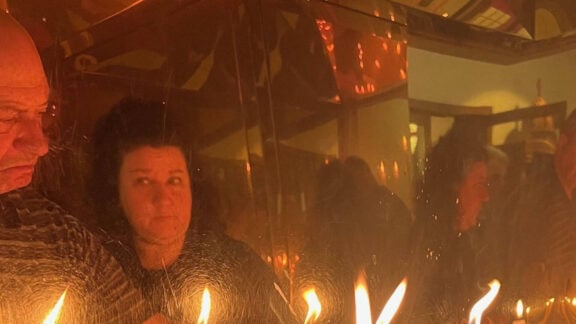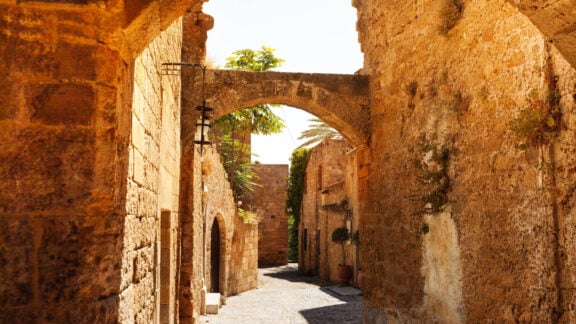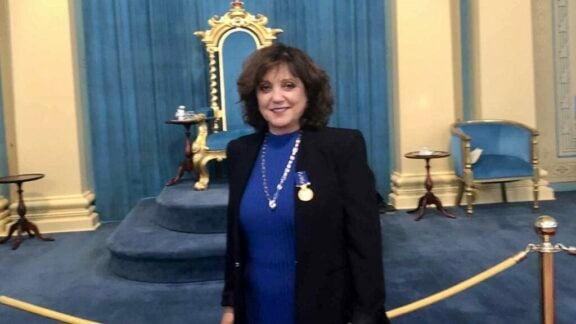In light of the growing conversation among our community concerning the participation of women in the dive for the Holy Cross, which takes place during the Epiphany’s Blessing of the Waters ritual; Neos Kosmos sought clarification from the Archdiocese on its official position.
The office of Archbishop Makarios made clear to Neos Kosmos that “there has never been a canon against women diving for the cross, as long as they are modestly dressed.”
The Holy Theophany, Epiphany, the Celebration of the Lights or simply “τα Φώτα” (the Lights) observed on January 6 is among the most revered and sacred of feast days on the Greek Orthodox calendar.
Commemorating the baptism of Jesus Christ by John the Baptist in the Jordan River, perhaps the most iconic of the ceremonies associated with the holiday is the Blessing of the Waters.
The sight of faithful diving for their chance to be the first to return the Holy Cross during the annual rite is ubiquitous across the diaspora.
But what’s not so common a sight, is the participation of women in the age-old practice.
Neos Kosmos spoke with Victoria Paneras, who at the age of 17 was the first female swimmer in South Australia to retrieve the cross at the Blessing of the Waters.
She says that although she didn’t think much about the implications of her taking part in the lead up, once she’d gone and done it the significance sunk in.
“I’d only planned to go in a few days before, once I’d done it the sense of connection I felt with the faith and my culture was immense.”
“I didn’t realise the impact beforehand but afterwards I had all these Yiayia’s come up to me, saying they’d been waiting their whole lives to see something like it, it was an overwhelming and emotional experience,” she says.
The reason behind the status-quo is apparently not a matter of religious canon.

Many Greek Churches in Australia and abroad have for some years said in their announcements concerning the sacrament that all adherents, whether they be male or female, are welcome and encouraged to participate.
However, they do often request that women wishing to participate wear a one-piece swimsuit for the event, in the name of “modesty”.
“There was obviously a little bit of apprehension but as always 99 per cent of people were just so supportive,” Victoria says. There’s no explicit request for modesty among the male congregation, who are seldom seen sporting a rashie in their quest for the crucifix.
“The atmosphere was just so celebratory, people were crying, our local priest still talks about it today whenever he sees me, ‘the girl who caught the cross’.”
Victoria’s been every year since, COVID permitting, because she’s eager to see other women take the plunge.
“Within a few hours of grabbing the cross, I was receiving messages from young girls over Facebook, congratulating me and saying they’d wanted to participate for ages,” she explains.
If there are no canonical precedents barring women from inclusion in the practice, then maybe the onus falls on the community itself to observe a more egalitarian Epiphany.
“I’m one of three girls and my parents have brought us up to strive for our goals regardless of anything, gender included,” Victoria adds.
“Not knowing if I could participate didn’t stop me, I just hope that my taking part has made it clear to others that if they want to, they should have a go.”









